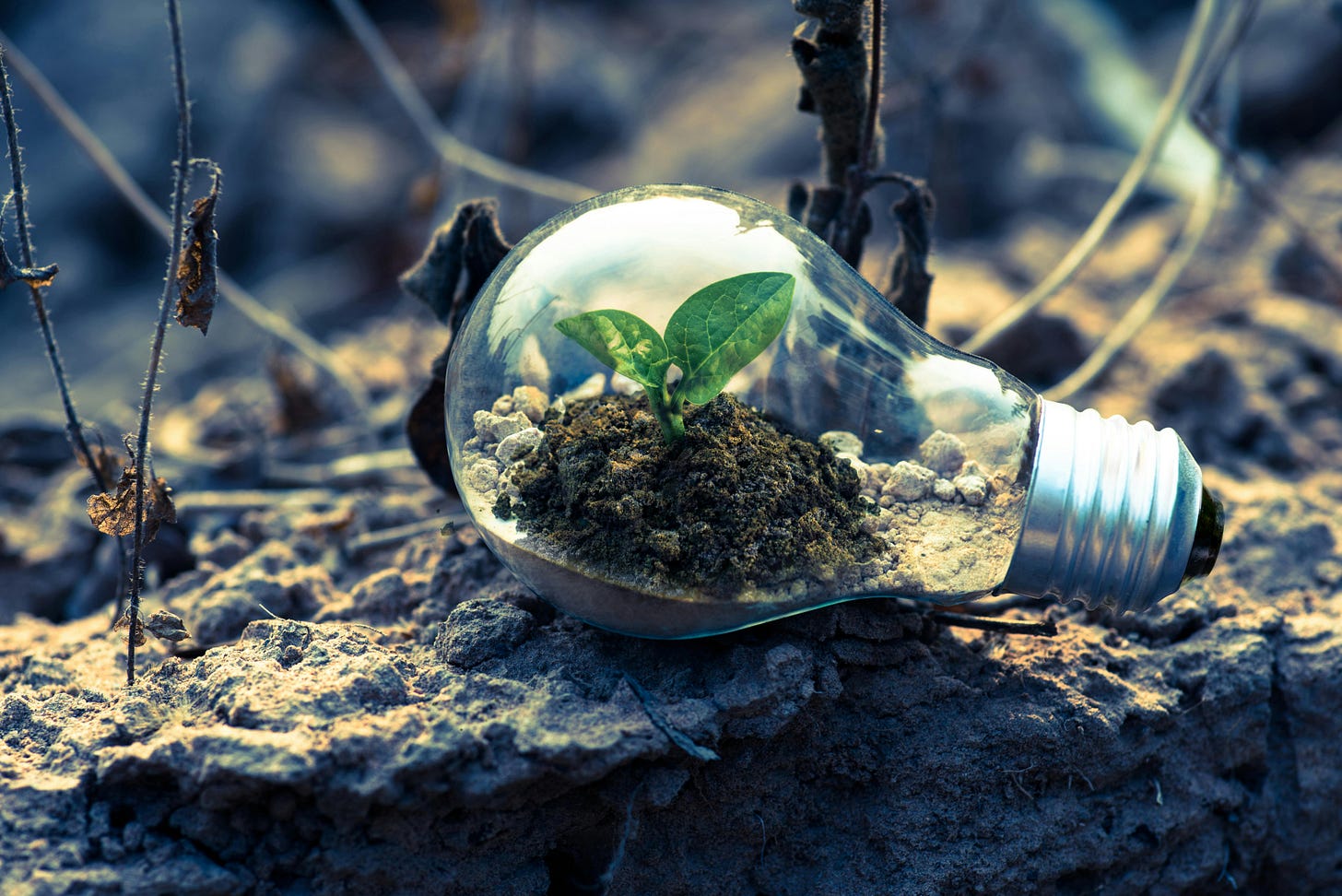What If Collapse Isn’t the End, But a Threshold?
When collapse is no longer a crisis, but an initiation.
Author’s note: This reflection isn’t a critique of any particular system or leadership style. It’s a symbolic offering—one among many—meant to open dialogue about what becomes possible when we bring more awareness to what we carry forward.
Something’s unraveling.
You can feel it in the economy, in the climate, in the social fabric. In relationships that feel out of sync. In headlines that read like the fever dream of a dying culture.
As Naomi Klein wrote in The Shock Doctrine, it’s often in these moments of collapse, when societies are in disarray, that the next system begins to take shape. The ideas that are already “lying around” become the scaffolding for what follows. Historically, those restructurings have often been top-down, driven by power and profit.
This post isn’t about top-down manipulation, but about something quieter, and potentially more generative: What if we offered a different kind of idea to be “lying around”?
Beneath the noise, something pulses. A strange clarity. The quiet knowing that what’s collapsing might not be the end, but the beginning of a deeper initiation.
I’ve come to call this kind of moment the Mythopoetic Threshold.
It’s not just a crisis—it’s a symbolic crossing point between two realities: one crumbling, the other not yet born. This threshold can feel like a doorway between an enchanted world and madness. Piranesi walked it in fiction. Carl Jung crossed it and returned with the Red Book. Nietzsche stepped through and never came back.
Earlier this year, I co-led a conscious leadership workshop on regenerative finance with a senior executive from one of the world’s leading banks. We weren’t just exploring financial systems, we were sensing into what’s energetically trying to emerge through the cracks. That’s when we encountered a teaching from the Kogi people of Colombia.
The Kogi shared how certain sacred sites—tree groves, river mouths, forest clearings—are off-limits to the uninitiated. Why? Because even the thought forms of the untrained can contaminate those living spaces. Whether you take that literally, metaphorically, or psychologically, the message is clear: the inner architecture we bring matters.
That struck me deeply.
We, too, are approaching sacred terrain. The old systems are collapsing. The compost is ready. But if we carry the same fear-based scripts, scarcity reflexes, or techno-utopian fantasies into the new, we risk replicating the very dynamics we’re trying to leave behind.

This doesn’t mean only the spiritually initiated or symbolically fluent are “fit” to build what’s next. Far from it. Transformation will be messy, uneven, and full of contradiction. What I’m pointing to is the opportunity, the necessity, even, to pause and become conscious of what we bring forward.
As we scout, steward, and curate our way through this global unraveling, we’re being asked to deprogram inherited beliefs and assumptions. The inner work isn’t a precondition for acting in the world, but it does shape the tone, the resilience, and the relational field of what we create. This is an initiation. Not a ceremonial one, but a lived, often uncomfortable process of deprogramming the inherited beliefs and structures that no longer serve.
And while some are preparing for the new, others are fighting to preserve the old. We might call them Protectors—those still invested in upholding the dominant system. Their resistance isn’t necessarily malicious. Often, it’s rooted in care for stability or fear of chaos. But symbolically, this defense sometimes resembles what psychology calls an extinction burst: a final flare of intensity from a system on its way out.
In Hanzi Freinacht’s terms, it’s the reactionary pull—not forward into greater complexity, but backward into the safety of the known. Back from postmodernism into modernism. Back from pluralism into fundamentalism. From complexity to nostalgia. From co-creation to command and control. Not because it's wrong, but because it's what the system knows how to do when facing uncertainty.
We can carry forward what’s essential—but we cannot rebuild the future by returning unchanged.
Not if we want to stay alive ecologically, psychologically, spiritually.
This moment asks us to compost not just broken institutions, but the worldviews that quietly animated them. To lay down the ghosts of control and certainty. To release the thought forms that are incompatible with the world to come.
It won’t be perfect, but it will be more honest.
We don’t need more gurus. We need resonance. We need people who are willing to walk into uncertainty with clear eyes, open hearts, and a willingness to let go of illusions in service of something deeper.
You might already be one of them.
If you’ve felt the collapse coming—not just in headlines, but in your bones—then perhaps you’re not here to fix the old, but to midwife the new.
Let’s walk this threshold together.
Reflection:
What thought forms are you carrying that may not belong in the world ahead?




It seems that way. All systems collapsed and imploded to make room for the new. This time may be different: not a new social system, but a new everything. Quite exciting!